At A Glance:
- The relationship between food and ADHD is not 100% clear yet because studies on this topic are limited.
- However, I have found in my own practice that the food a child eats on a daily basis can have a significant impact on the frequency and severity of their ADHD symptoms.
- Below is a list of healthy foods that have helped my young clients with ADHD, in hopes that they will help your child as well.
- Keep in mind that every child reacts differently to food.
- Always consult your child’s doctor before making any changes to their diet.
Managing the symptoms of ADHD can be troublesome as an adult, and helping your child manage them can be even more complex and challenging.
As a result, I have started to include lifestyle changes like a healthy diet, relaxation techniques (meditation, acupuncture, and yoga), sound sleep, and regular exercise into my patients’ prescribed treatment plans.
The foods you serve your child on a daily basis can have a significant impact on the frequency and severity of her ADHD symptoms. Note, though, that every child reacts differently to food. For example, dairy products may help ease ADHD symptoms in some children, while exacerbating them in others. Therefore, always consult your child’s doctor(s) before making any changes to her diet.
Also, keep in mind that studies [2, 3] on foods and ADHD are limited at this time, so be aware of this when increasing your child’s consumption of these foods.
While the hope is that healthy foods like the ones listed in this article will alleviate some, if not, all of your child’s ADHD symptoms, there is no guarantee, and some of the content in this article is based on my experience alone.
Still, studies have indicated that consuming healthy foods on a regular basis can, and often does, benefit your body and mind. [2, 3, 4, 5]
That being said, some foods like deli meat and caffeinated beverages have been known to trigger ADHD symptoms in some children, while healthier foods that contain high levels of protein, calcium, vitamins, and minerals appear to have the opposite effect on children with ADHD (calmer behavior and increased focus).
Here is a list of healthy foods that have helped my young clients with ADHD. I hope they help your child too:
Table of Contents
- 1. Lean Beef & Other Protein-Rich Foods
- 2. Raisin Bran & Other Healthy Foods Rich in Zinc, Iron, and Magnesium
- 3. Salmon & Other Omega-3 Rich Foods
- 4. Spinach & Other Foods Rich in B Vitamins
- 5. Apples, Pears, Oranges & Kiwi
- 6. Popcorn
- 7. Gluten-Free & Yeast-Free Foods (Corn, Rice, Beans, Soy & Potatoes)
- Important Note…
- Further Reading
Listed below are healthy foods that may help your child better manage his/her ADHD symptoms:
1. Lean Beef & Other Protein-Rich Foods
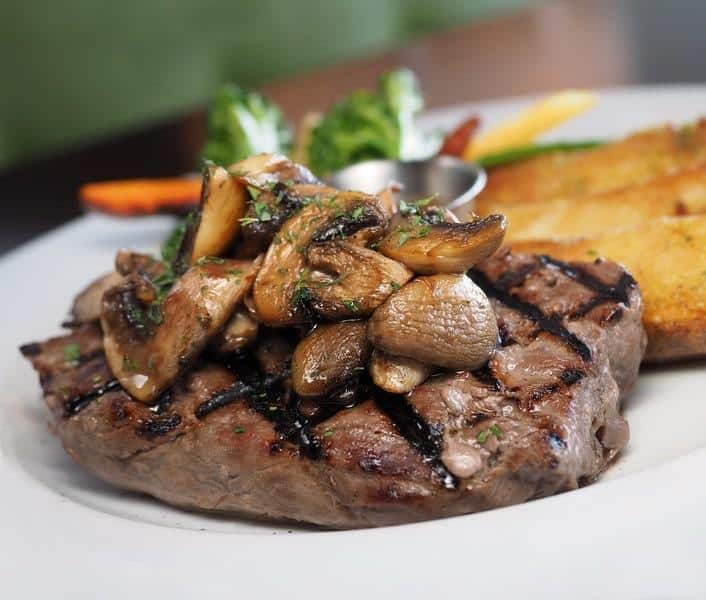
Foods rich in protein may be beneficial for children with ADHD. [8]
Examples of such foods include:
- Top sirloin steak
- Filet mignon
- Bottom round steaks
- Flank steak
- Pork tenderloin
- Chuck shoulder roasts
- Lean ground beef
- Lamb
- Veal
- Nuts
- Skinless turkey breasts or lean or extra lean ground turkey
- Lean or extra lean chicken or skinless chicken breasts
- Soy
- Pork
- Eggs
- Beans
- Low-fat dairy products like goat cheese
Why Protein? Because protein is used by the body to produce neurotransmitters, chemical “messengers” that transmit “messages” throughout the brain. In addition, healthy foods that contain high levels of protein may stabilize your child’s blood glucose (blood sugar) levels, reducing hyperactivity. [8]
Many parents of the young children I treat for ADHD report that their children experience fewer ADHD symptoms (impulsivity hyperactivity, and inattention) if they stick to lean protein sources, more so than if they consume fatty foods like fast-food hamburgers and fries. [8]
Therefore, if possible, fix your child a healthy breakfast complete with some form of protein to combat or ease his ADHD symptoms.
Also, provide your child two protein-rich snacks throughout the day, such as:
- Trail mix
- Swiss or mozzarella cheese with almonds
- Greek yogurt fruit parfaits
- Apples and peanut butter
- Hummus and pita chips
Last, include a serving of protein for both lunch and dinner. For example:
- Hamburger made with lean ground beef and lots of veggies
- A baked or grilled skinless chicken breast with green beans, corn, and mashed potatoes
*** It is important to note that although goat cheese and eggs are rich in protein, and as a result, could improve your child’s focus and the effectiveness of his ADHD medications, some children have egg and milk allergies that may trigger or worsen ADHD symptoms. Therefore, exercise caution when giving your child these foods.
2. Raisin Bran & Other Healthy Foods Rich in Zinc, Iron, and Magnesium
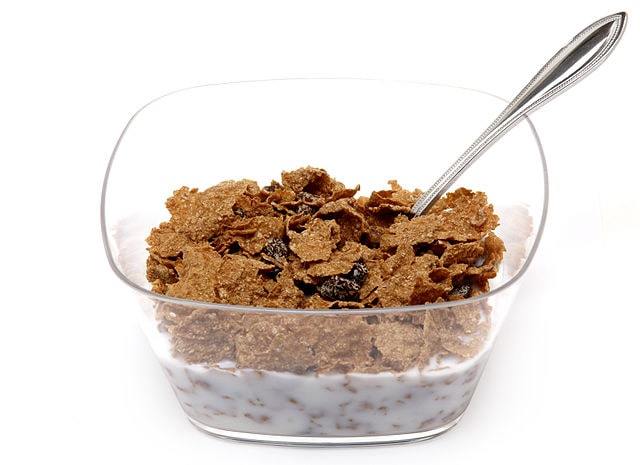
If your child’s ADHD has recently “ramped up” in frequency or severity, you may want to start serving him Raisin Bran cereal for breakfast. Why? Because fortified cereals like Raisin Bran are chock full of good nutrients like zinc, iron, and magnesium.
Zinc is beneficial for children with ADHD because it controls their dopamine (a neurotransmitter) production. More specifically, it increases the effectiveness of methylphenidate (a central nervous system stimulant sometimes used to treat ADHD) by improving their response to dopamine. [8]
Zinc also aids in brain development, cognitive function, neurotransmitter production, and brain health. [16] On the other hand, when a child with ADHD has low levels of zinc in his blood, it puts him at risk for carelessness, distraction, and inattention, but not hyperactivity or impulsivity.
A zinc deficiency is also linked to poor growth, development, and appetite in some children. [16]Moreover, researchers are finding that a zinc deficiency can trigger or worsen inattention (a lack of focus and concentration) in some children with ADHD. [8]
Did you know that an iron deficiency can also negatively affect cognitive function during the early years of development?[16] When a child doesn’t get enough iron during childhood, her brain does not function properly, possibly leading to neurodevelopmental conditions like ADHD. [16]
Low levels of iron can also lead to a weakened immune system, severe fatigue, insomnia, restless leg syndrome, poor concentration and focus, continuous bruising, or learning delays. [16]
Healthy iron-rich foods are beneficial for children with ADHD because iron is needed to produce dopamine. In fact, according to one recent study, approximately 84% of children with ADHD have low ferritin levels (a form of iron), as compared to 18% of children without ADHD. [9]
Researchers have suggested that low levels of iron can lead to impaired cognitive function and ADHD in some people. [9]
Magnesium, a mineral, may be helpful for children with ADHD because, like zinc, it is needed for your child’s body to produce dopamine and norepinephrine, neurotransmitters responsible for attention, focus, and concentration. This mineral may also produce a calming sensation in the body in some children with ADHD. [8]
Moreover, magnesium may ease your child’s nerves, reduce impulsivity, encourage blood flow throughout your child’s brain and body, and break down the nutrients found in foods so they can be used for focus and concentration. [16]
It is important to note that ADHD children who have a magnesium deficiency are more likely to be distracted and hyperactive than those without this deficiency. [16]
Therefore, researchers have concluded that a healthy diet rich in magnesium may help children with ADHD concentrate and focus better at school. [16]
So, if you can’t get your child to eat Raisin Bran, other cereals and healthy foods rich in these three nutrients include:
- Shrimp
- Alaskan crab
- Peanuts
- Almonds
- Low-fat milk and cheese
- Cashews
- Soy
- Lean red meat
- Kale
- Spinach
- Greens
- Steak
- Eggs
- Lentils
- Apricots
- White beans
- Dark chocolate
- White button mushrooms
- Pumpkin seeds
- Fortified cereals like Wheaties cereal, Fiber One: Honey Clusters cereal, Cap’n Crunch: Chocolatey Crunch cereal, Multi-Grain Cheerios cereal, Corn Flakes cereal
- Whole grains
3. Salmon & Other Omega-3 Rich Foods
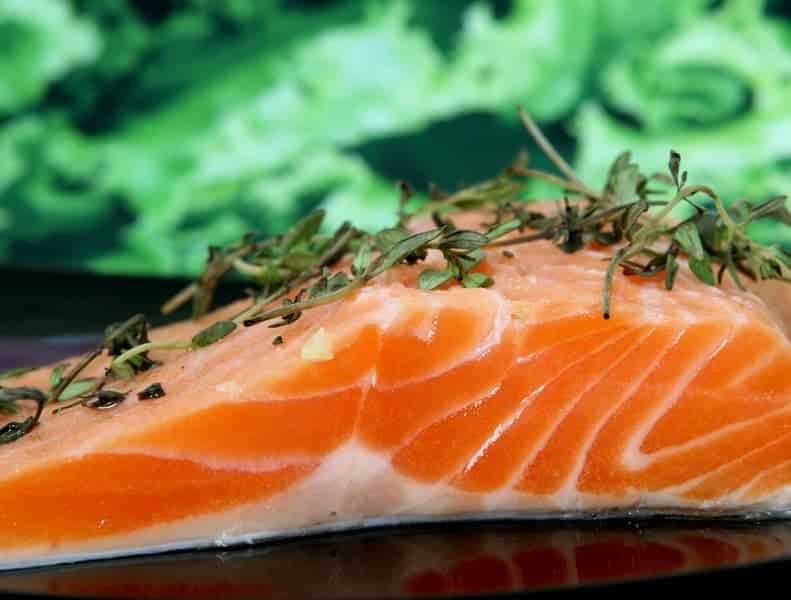
If your child likes fish, specifically salmon, tuna, or sardines, you may be in luck, because salmon and other omega-3 rich foods may help reduce her ADHD symptoms.
In fact, salmon is one of the healthiest fish your child can eat. Omega-3 fatty acids, normally referred to simply as “omega-3,” play an important role in both brain and nerve cell function.[8]
In fact, a 2009 study on the relationship between omega-3 and ADHD found that cold water, fatty fish like salmon, tuna, and sardines could reduce ADHD symptoms up to 50% in some people. [10]
In addition, a 2005 study on omega-3 and ADHD found that people with ADHD were better able to metabolize omega-3 than those without the condition. [11]
Researchers also found that people with ADHD with low levels of omega-3 in their blood showed the biggest improvement in focus, concentration, and cognitive activity after adding foods that contain omega-3 to their daily diets. [11]
If your child loves salmon, tuna, or sardines, try to serve it to her at least once or twice a week. If your child simply refuses to eat fish, then add one or more of the following foods to her lunches or dinners:
- Flaxseeds or flaxseed oil
- Canola oil
- Spinach
- Brussel sprouts
- Navy beans
- Wild rice
- Winter squash
- Broccoli
In addition, give your child walnuts, almonds, peanuts, or Brazil nuts for a snack, because all of these nuts are loaded with omega-3.
4. Spinach & Other Foods Rich in B Vitamins
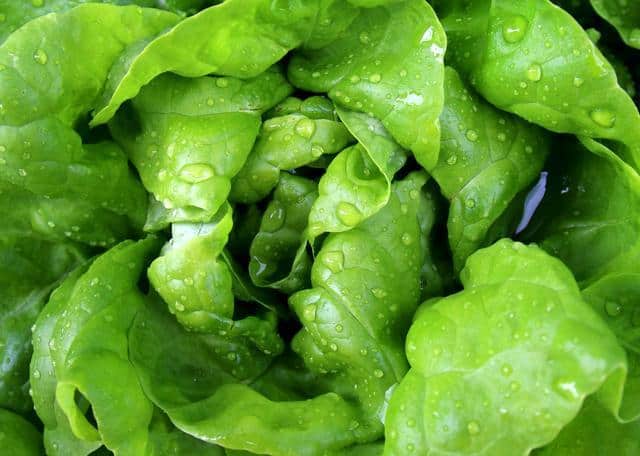
If you’ve noticed your child’s ADHD intensifying lately, you may need to ramp up on his B vitamins. [8] Researchers suggest that increasing your child’s consumption of healthy foods rich in vitamin B may reduce aggression, impulsivity, and hyperactivity in some children with ADHD. [8]
In fact, it appears that vitamin B-6 can increase an individual’s production of dopamine which is responsible for focus, concentration, and attentiveness. [8]
If your child dislikes spinach and other dark leafy greens, you can still get a range of B vitamin foods from the following sources[21]:
For vitamin B-6:
- Potatoes
- Chicken
- Seafood
- Bananas
- Fortified cereals
For vitamin B-12:
- Fortified cereals
- Clams
- Mussels
- Soy
- Beef
- Crab
For biotin and pantothenic
- Liver
- Pork
- Avocados
- Fruits
- Veggies
- Low-fat cheeses
- Egg yolks
- Whole grains
- Yogurt
- Mushrooms
- Split peas
- Broccoli
- Sweet potatoes
- Salmon
For thiamine/vitamin B-1:
- Oatmeal
- Asparagus
- Beans
- Oranges
- Broccoli
- Grass-fed beef
- Romaine lettuce
- Asparagus
- Cabbage
- Spinach
- Sunflower seeds
- Carrots
For niacin/vitamin B-3:
- Chicken
- Salmon
- Carrot
- Collard greens
- Spinach
- Broccoli
- Shrimp
- Mushrooms
- Cabbage
- Tuna
5. Apples, Pears, Oranges & Kiwi
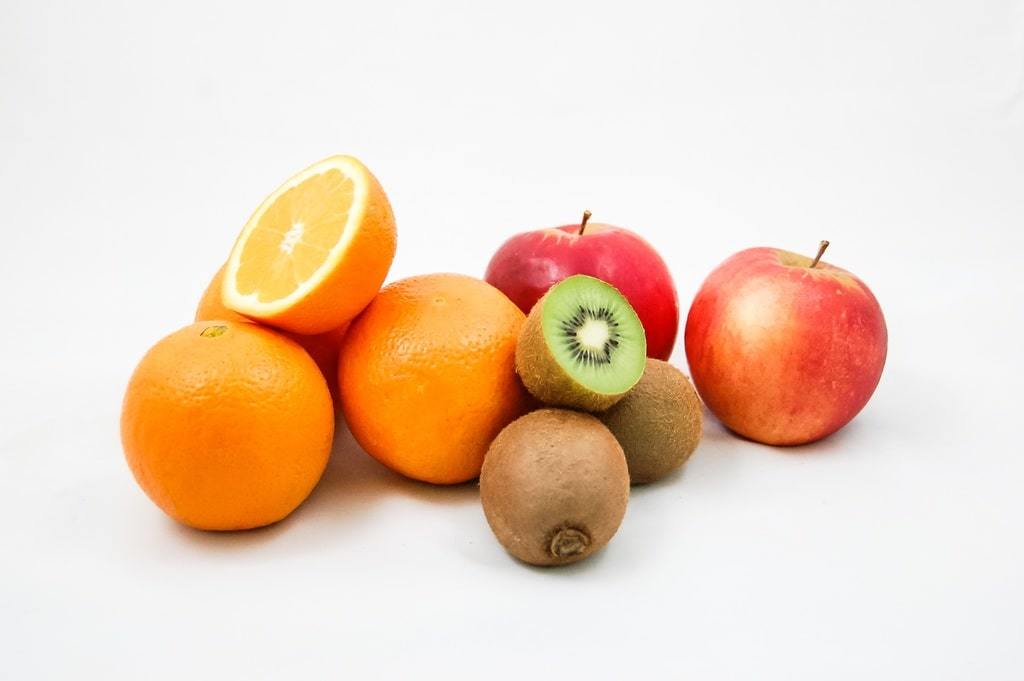
Remember the old saying “An apple a day keeps the doctor away?” Well, it may just be true when it comes to ADHD symptoms, at least for some children.
Fruits like apples, pears, oranges, and kiwi can do amazing things for your child’s body (including their mind) when consumed on a regular basis, so it’s reasonable to assume that they may actually reduce your child’s ADHD symptoms. So for children with ADHD maybe the saying should be: “An apple a day may keep ADHD symptoms away.”
So how can apples benefit a child with ADHD? Well, apples are excellent sources of complex carbohydrates. Complex carbohydrates may be good for children with ADHD because they provide the fuel for your child’s brain cells.
They also provide the glucose that is needed for your child’s brain to function properly. And, when your child’s brain is able to function at a higher level she is also able to focus and concentrate better at school.
As a result, I often recommend that parents of ADHD children increase their consumption of complex carbohydrates like apples, pears, oranges, and kiwi.
Give your child these healthy foods shortly before bed (about an hour before bedtime) because studies show that complex carbohydrates may calm children with ADHD, helping them sleep more soundly. [14]
Note: Although apples may benefit some children with ADHD by reducing their symptoms, for others, it may actually exacerbate them.
Why? Because even though apples are considered “healthy foods,” they also contain salicylates, chemicals found in aspirin and other pain relievers, so take caution before giving your child apples for her ADHD symptoms.
And remember that every child is different, so what works for one child may not work for another.
Pears are also complex carbohydrates that are good for the body. If your child does not like apples, pears can provide her with a healthy alternative. And just like apples, pears may help your child sleep better at night, improving her concentration, focus, and behavior in the morning. [15]
What about oranges? Like apples and pears, oranges and pure orange juice are also complex carbohydrates.
These citrus fruits are loaded with vitamin C, which strengthens your immune system, repairs cellular damage, and helps your body produce neurotransmitters like dopamine and norepinephrine (chemical “messengers” that send “signals” to various parts of your child’s brain). Plus, they may also ease ADHD symptoms in some children. [15]
Complex carbohydrates like oranges also are considered “natural sleep aids” which is helpful for children with ADHD who have a hard time falling asleep at night. [15]
And lastly, what child doesn’t like kiwi? Similar to apples, pears, and oranges, kiwi are great complex carbohydrates, which means they can have a calming effect on the body, promoting sleep. [15]
This is important because children need sound sleep to perform to the best of their abilities at school.
Raspberries, strawberries, cranberries, blueberries, blackberries, and pomegranates are also loaded with complex carbohydrates.
Your child can also obtain these healthy nutrients through:
- Lentils
- Black beans
- Soybeans
- Kale
- Broccoli
- Sweet potatoes
- Green peas
- Parsnips
- Oatmeal
- Quinoa
- Air-popped popcorn
- Whole grain pasta
6. Popcorn
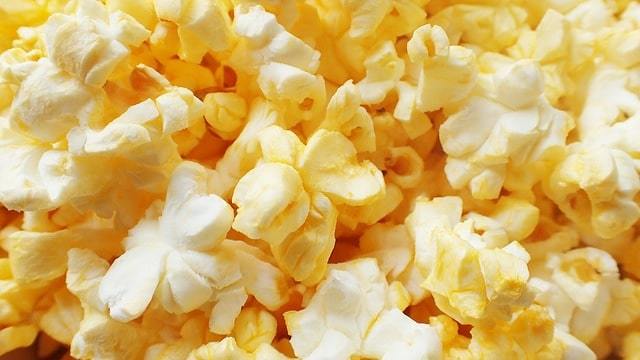
What child doesn’t love popcorn? The good news is that this low-calorie snack may help your child with his ADHD symptoms. [16] Children with or without ADHD tend to lack fiber in their daily diets.
Fiber-rich foods like popcorn (sans the extra butter and salt) are good for children with ADHD because they contain low levels of sugar, which is needed to help control their glucose (blood sugar) levels. Low sugar levels in children with ADHD may lead to reduced hyperactivity and increased focus and concentration. [16, 18]
In addition, foods rich in fiber are good for children with ADHD because recent studies suggest that children with ADHD tend to experience more bowel problems, especially constipation, than children without ADHD. [19]
In fact, a 2013 study conducted by the Uniformed Services University of the Health Sciences explored the relationship between ADHD and chronic constipation and fecal incontinence in ADHD children ages 4 to 7 years old. [19]
According to the results, approximately 4% of children with ADHD suffered from chronic constipation, in comparison to only 1.5% of children without this condition. [19]
In addition, approximately 1% of ADHD children experienced fecal incontinence, in comparison to only 0.15% of those without the condition. [19]
Results suggest that children with ADHD visit their pediatricians more often for bowel problems like chronic constipation and fecal incontinence than children without ADHD [19]
Researchers have concluded that children with ADHD are more likely to experience constipation and fecal incontinence than children without this condition. [19]
In fact, these children are 6x more likely to experience fecal incontinence and 3x more likely to become constipated than non-ADHD children. [19]
So, what’s the connection between bowel issues and ADHD in children? Well, according to the researchers, children with this condition may experience bowel issues because they have a hard time controlling their behavior, paying attention, staying focus, thinking about their actions before they do them, and concentrating on the task at hand. [19]
And, because these children have a hard time managing their behavior and recognizing verbal and non-verbal cues, there is a chance that they may not notice or pay attention to their body cues, leading to chronic constipation or fecal incontinence. [19]
In other words, these children may continue with their current activities because they don’t realize the signs that they need to stop and use the restroom.
As a result, they learn to suppress their urges to defecate, leading to bowel issues. And unfortunately, once these children recognize (due to abdominal pain) that they need to defecate, it’s often too late. [19]
In other words, the buildup of stool makes it painful or in some cases impossible to have a bowel movement. And once children begin having pain during bowel movements, they are more likely to suppress them even more, perpetuating the cycle of constipation. [19]
So you may want to consider giving your child a small bowl of popcorn as his afternoon snack. If your child is like me and not too fond of popcorn, there are plenty of ways you can add fiber to his daily diet.
Other foods that included healthy amounts are fiber include:
- Quinoa
- Flaxseeds
- Avocado
- Oatmeal
- Raisins
- Pears
- Coconut
- Berries
- Figs
- Dark, leafy greens such as turnip greens, spinach, and kale
- Sprouts
- Squash
- Okra
- Green peas
- Chickpeas
7. Gluten-Free & Yeast-Free Foods (Corn, Rice, Beans, Soy & Potatoes)
Although there are no “official” studies on how gluten negatively affects children with ADHD, studies have shown that foods containing gluten or yeast can cause health issues like learning delays, hyperactivity, and irritability in “healthy” children (those without ADHD). So it’s safe to assume the same thing can happen to children with ADHD. [22, 23]
Researchers believe that once a child’s immune system has been compromised (due to illness or antibiotics), the “good bacteria” that normally live in their gut are overtaken by “bad bacteria”. Bad bacteria promote the growth of yeast. [22, 23]
More specifically, these researchers believe that toxins, triggered by an overgrowth of yeast (that can be found in foods that contain gluten), can weaken a child’s immune system, increasing her risk of developing ADHD-like symptoms. [22, 23]
Gluten-free and yeast-free foods help maintain the “good bacteria” in your child’s gut, possibly reducing some of their ADHD symptoms.
However, if you can’t get your child to eat corn, rice, beans, soy, or potatoes, try these gluten-free and yeast-free foods:
- Lentils
- Peas
- Berries
- Carrots
- Quinoa
- Eggs
- Wild-caught fish
- Olives
- Coconuts
- Salmon
- Grass-fed beef
- Dark, leafy greens
- Cabbage
- Celery
- Spinach
- Collard greens
- Pork
- Chicken
- Pumpkin seeds
- Avocados
- Milk
- Cheese (sans blue cheese)
- Cauliflower
- Green beans.
Important Note…
It is important to note that although researchers, doctors, and scientists all agree that a healthy diet is paramount for growth and development, the jury is still out as to whether or not certain foods can actually improve concentration, focus, and behavior in children with ADHD.
Therefore, it is imperative that any healthy foods you give your child be in conjunction with her prescribed treatment plan – not in replacement of it. A healthy body often leads to a healthy mind, so ramping up your child’s consumption of healthy foods will only make them stronger and better equipped to battle her ADHD symptoms.
Further Reading
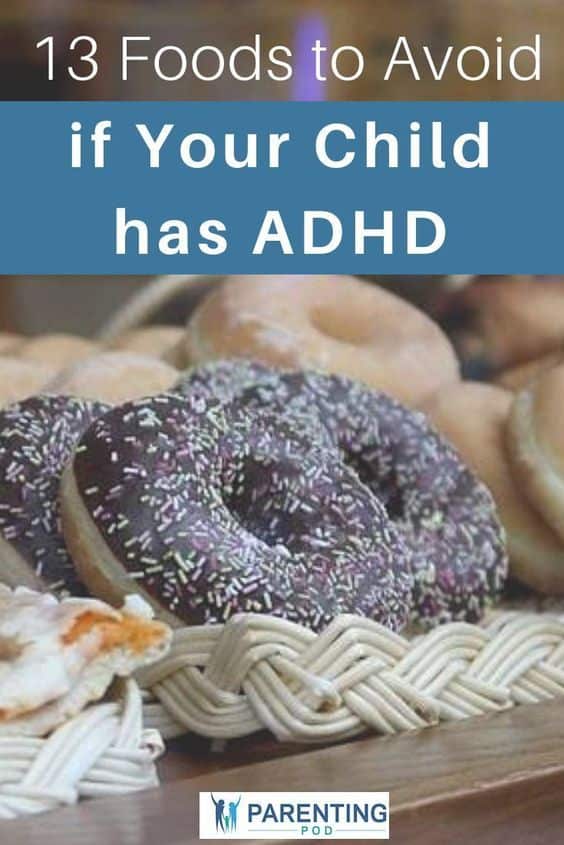
References:
- Centers of Disease Control & Prevention (CDC). (2018). Attention-deficit/hyperactivity disorder (ADHD): Data and statistics.
- Millichap, J. G. & Yee, M. M. (2012). The Diet Factor in Attention-Deficit/Hyperactivity Disorder. Pediatrics.
- Jaslow, R. (2012). ADHD diet suggests healthy eating might help kids. CBS News.
- Harvard Medical School. (2012). Boost your memory by eating right.
- Sánchez-Villegas, A., Henríquez-Sánchez, P., Ruiz-Canela, M., Lahortiga, F., Molero, P., Toledo, E., & Martínez-González, M. A. (2015). A longitudinal analysis of diet quality scores and the risk of incident depression in the SUN Project. BMC Medicine, 13(1).
- National Institute of Mental Health (NIH). (2018). Attention deficit hyperactivity disorder.
- National Institute of Mental Health (NIH). (2018). Attention deficit hyperactivity disorder.
- ADDitude. (2018). Why sugar is kryptonite for ADHD brains.
- Konofal, E., Lecendreux, M., Arnulf, I., & Mouren, M. (2004). Iron deficiency in children with attention-deficit/hyperactivity disorder. Archives of Pediatrics & Adolescent Medicine, 158(12), 1113.
- Johnson, M., Ostlund, S., Fransson, G., Kadesjo, B., & Gillberg, C. (2009). Omega-3/Omega-6 fatty acids for attention deficit hyperactivity disorder: A randomized placebo-controlled trial in children and adolescents. Journal of Attention Disorders, 12 (5), 394-401.
- Young, G. & Conquer, J. (2005). Omega-3 fatty acids and neuropsychiatric disorders. Reproduction Nutrition Development, 45(1), 1–28.
- Frye, D. (2018). ADD: Vitamins and supplements. ADDitude.
- Frye, D. (2018). ADD: Vitamins and supplements. ADDitude.
- Howard, A. L., Robinson, M., Smith, G. J., Ambrosini, G. L., Piek, J. P., Oddy, W. H. (2010). ADHD is associated with a ‘western’ dietary pattern in adolescents. Journal of Attention Disorders, 15(5).
- Frye, D. (2018). ADD: Vitamins and supplements. ADDitude.
- Castle, J. (2016). A healthy ADHD diet for kids.
- Mayo Clinic. (2018). Nutrition and healthy eating.
- Mayo Clinic. (2018). Nutrition and healthy eating.
- McKeown, C., Hisle-Gorman, E., Eide, M., Gorman, G. H., & Nylund, C. M. (2013). Association of Constipation and Fecal Incontinence With Attention-Deficit/Hyperactivity Disorder. Pediatrics, 132(5), e1210–e1215.
- Jaslow, R. (2012). ADHD diet study suggests healthy eating might help kids. CBS News.
- Jaslow, R. (2012). ADHD diet study suggests healthy eating might help kids. CBS News.
- Van Heel. D. A. & West, J. (2006). Recent advances in coeliac disease. Gut, 55(7), 1037–1046.
- Corrao, G., Corazza, G. R., Bagnardi, V., Brusco, G., Ciacci, C., Cottone, M., Sategna Guidetti, C., Usai, P., Cesari, P., Pelli, M. A., Loperfido, S., Volta, U., Calabró, A., & Certo, M. (2001). Mortality in patients with coeliac disease and their relatives: a cohort study. Lancet, 358(9279), 356-61.


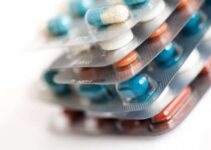
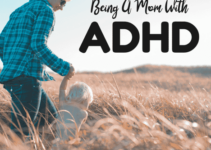
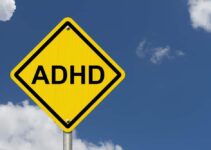



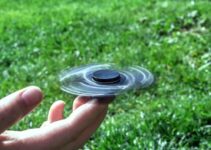

Mu son and I are both ADHD. When we realized gluten as a major trigger and removed it from our diets we couldn’t believe the difference!! Now if either one of us have any we can tell right away because of how irritable and moody we are. Recently I have also noticed dairy and refined sugar are also major triggers (specifically together). The more processed the dairy the worse it is. So, ice cream, for example, has a similar effect on my 8 yr old son as gluten does. He gets hyper. Then out of control hyper where he starts playing too rough. Then he is overly emotional, moody and irritable and has little control over it. It usually spirals downward quickly into him getting put in time out of having to have quiet time by himself to cool off and get his emotions back in check, but after having this happen several times clued is in to what was causing it. Sorry for the lengthy comment. Hope it helps someone else!
Yes, it did. thank you.
My son is 16, and we, as a family, adopted the Feingold diet about 10 years ago with great results for all of us. Headaches reduction/elimination, skin improvement, sense of well being, + unintentional target gifts for other family members.
All the things you mentioned are not necessary things to give up entirely to follow Feingold’s recommendations.
Reading your comments reinforced thoughts I’ve been having lately as of now all the kids are home from school and eating ‘in house’ full time due to Covid-19 spread. I do think I see different things arise as the rate of consumption of refined sugars and carbohydrates increase and decrease.
I think it’s time for another shift, just to see 😊.
Thank you.
I know it’s a long time since your post, but I want to thank you for the advice here. I have a 9 year old which I want to keep off meds and I’m looking for this kind of tried and tested information as opposed to the posts written by the experts. Thank you again for your help. Wishing you both all the best x